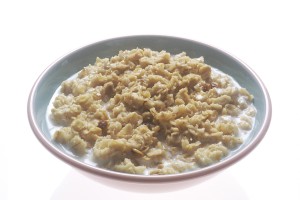It’s called the most important meal of the day – and with this in mind researchers at the University of Bath want to know what the city’s residents eat for breakfast and how it affects their health.
The study by the university’s Centre for Nutrition, Exercise & Metabolism aims to understand more about the health impact of different types of breakfast.

Participants will have to stick to eating one type of breakfast over the course of a month-long study.
They will be randomly assigned to different groups, with some eating a typical porridge breakfast and others tucking into porridge with added protein, while a third cohort will skip breakfast altogether so consuming no energy until their lunch each day.
This will help researchers understand more about the impacts of different types of breakfast on our health, such as body weight, activity levels, energy intake, insulin levels as well as the changes in the genes that control our body clock.
The work builds on previous high-profile and wide-reaching studies by the research team, part of the university’s Department for Health, on different aspects of physiological and metabolic health.
Ten years ago the team published some of the most detailed findings up to then on the effects of breakfast, which sparked widespread global news coverage.

Last year two studies led by PhD students Harry Smith and Aaron Hengist into the effects of over-indulgence and the impact of coffee in the morning also generated much media interest. Both research papers were nominated for the ‘study of the year’ award by the British Journal of Nutrition.
Harry Smith, who is now leading on the breakfast study, said: “Following our previous research, we are interested in whether some of the reported benefits of protein ingestion at breakfast result in improvements in our metabolic health.
“For this study we will ask participants to stick to an allocated breakfast for 28 days. We will assess their bodies’ response to a standardised meal both before and after this period to see the effects of each breakfast intervention on the various aspects of metabolism.
“We will also ask them to wear an activity monitor and record the food they eat before and during the 28 days. With this, we will be able to provide them with detailed feedback on both their diet and physical activity levels.”
Co-director of the Centre for Nutrition, Exercise and Metabolism, Prof James Betts, added: “Breakfast is a meal which the majority of people consume every day and also a time when we tend to consume more similar foods everyday than at other meals.
“This means that fortifying common breakfast foods can be an effective simply way to modify the overall diet.”
To find out more or to volunteer for the breakfast study, click here
Participants will be asked to visit the lab on the university’s Claverton Down campus on three separate occasions.
The University of Bath is one of the UK’s leading universities both in terms of its research and the reputation for excellence in its teaching, learning and graduate prospects.



















